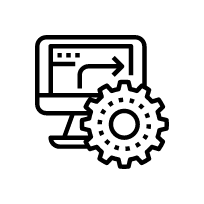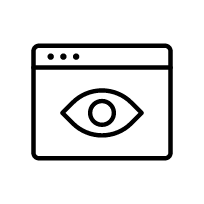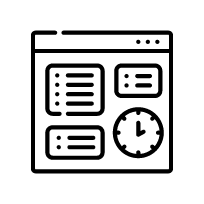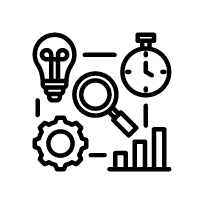Supply Chain
Benefit from an Integrated Supply Chain System


Managing your supply chain activities with an integrated supply chain system
Managing your supply chain activities with an integrated system can significantly enhance your business operations. An integrated supply chain system is a comprehensive solution that streamlines the various processes involved in supply chain management. This includes everything from sourcing raw materials and manufacturing products to distributing them to customers.
Integrating ERP>Retail into your business operations will provide a robust solution for managing your supply chain effectively. ERP>Retail offers a comprehensive approach to streamline various processes involved in supply chain management, making them instrumental in optimising the entire supply chain lifecycle.
This integration provides real-time visibility into supply chain operations, offering valuable insights for informed decision-making. By consolidating data across finance, operations, manufacturing, and human resources, ERP>Retail facilitates efficient communication and collaboration between different departments. This results in improved coordination and responsiveness to changes in demand or market conditions, ultimately contributing to enhanced productivity and customer satisfaction.
Master Your Supply Chain with
Seamless Integration
With ERP>Retail, you can seamlessly manage your supply chain activities, from sourcing raw materials and manufacturing products to distributing finished goods to customers. Integrating many functionalities within the ERP>Retail allows for a complete view of your supply chain, enabling better coordination and decision-making. By consolidating data and processes related to finance, operations and manufacturing, ERP>Retail provides real-time insights into the status of your supply chain. This visibility allows for better planning, more informed decision-making, and improved responsiveness to demand or market conditions changes. ERP>Retail also facilitates improved communication and collaboration between different departments involved in the supply chain, such as procurement, production, logistics, and sales, resulting in smoother operations and reduced lead times.
Key Benefits of Integrating ERP>Retail with your supply chain

Enables businesses to coordinate, streamline, and automate supply chain activities, such as planning, procurement, inventory, warehouse, and order management.

Provides a unified view of supply chain operations alongside financials and other important information, which helps with decision-making and performance analysis.

Helps businesses better plan sourcing and manufacturing based on customer demand and reduce or eliminate the challenges of integrating multiple applications to handle different supply chain functions.

Helps businesses reduce operating costs, improve customer service, respond quickly to changing market conditions, and comply with regulatory factors.

An integrated supply chain system enables you to segment your customer base more effectively. This means you can categorise your customers based on various criteria such as buying behaviour, location, or preferences.

One notable feature of an integrated supply chain system is the ability to set special prices for VIP customers. You can provide exclusive discounts or pricing structures to high-value or loyal customers. This personalised approach can boost customer retention and loyalty, ultimately driving higher revenue.
Our Certificates & Credentials

Frequently Asked Questions
Enterprise Resource Planning systems such as ERP>Retail and Supply Chain Management (SCM) are related, but SCMs are dedicated to supply chain planning and execution. ERP>Retail takes a more comprehensive approach, addressing financials, operations, commerce, reporting, and manufacturing functions. ERP>Retail covers many business functions, making them suitable for organisations seeking an all-in-one solution. In contrast, SCM systems are specialised tools to optimise supply chain operations.
ERP>Retail streamlines supply chain operations by providing real-time visibility into inventory, orders, and production processes. It enables better decision-making, reduces lead times, minimises stockouts, and enhances overall efficiency, ultimately optimising the supply chain for improved responsiveness and cost-effectiveness.
ERP>Retail helps with supplier communications by providing a centralised platform for real-time collaboration. It enables seamless information sharing on orders, inventory levels, and production schedules. This improved visibility and data accuracy can strengthen supplier relationships through better coordination and reduced errors.




